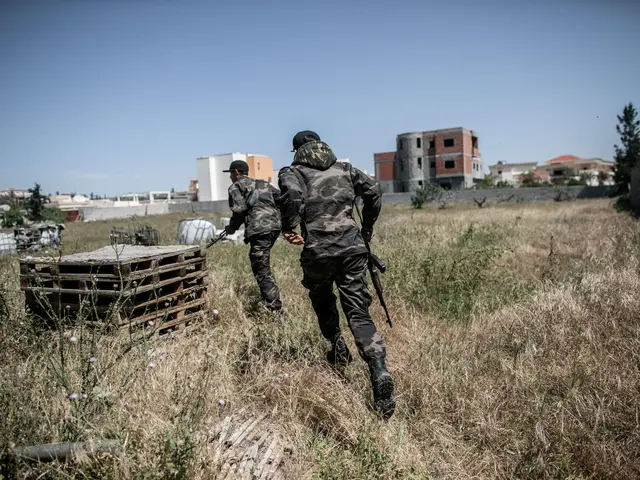As the COVID-19 pandemic continues to wreak havoc across the globe, the international community has renewed its call for the warring sides in the Middle East to focus on curbing the disease instead of fighting each other.
In a joint appeal issued on Saturday, five UN envoys to the Middle East urged for a cessation of hostilities across the region, following UN Secretary-General Antonio Guterres' recent call for a ceasefire amid the COVID-19 crisis.
POSITIVE RESPONSE
On March 23, Guterres called for a worldwide ceasefire. Some conflicting sides in the Middle East have responded positively to the UN appeal.
In Yemen, a country suffering from the world's worst humanitarian crisis, a two-week ceasefire proposed by the Saudi-led coalition backing the UN-recognized government went into effect on Thursday.
In the Gaza Strip, rare calm has been observed for over a month now. Though there has been no official ceasefire, Israel and Palestine have put aside their disputes and made joint efforts to fight COVID-19.
In Libya, both the UN-recognized government in Tripoli and the rival eastern-based forces publicly welcomed the UN's ceasefire call.
"The positive responses to the UN's call are also practical arrangements compelled by the pressure of the epidemic," said Ding Long, a researcher at the University of International Business and Economics in Beijing.
"After years of war, these countries are suffering from poor health, lack of medical staff and a large number of crowded refugee camps with no basic living facilities," he said. "Once the epidemic spreads, the consequences will be unimaginable."
So far, both Syria and Libya have reported 25 COVID-19 cases, respectively. Yemen reported its first case on Friday.
NO PEACE IN SIGHT
However, a gap between the declarations and actions remains.
During the past several days, military operations and sporadic attacks have continued between Yemen's government forces and the Houthi rebels in different turbulent areas of the impoverished Arab country.
Ali Bin Hadi, a retired military official and expert, said that there are no positive signs that fighting in Yemen would cease temporarily.
"The warring factions in Yemen only react and respond positively with the ceasefire calls through their media outlets, but on-ground is something else," the Aden-based expert said.
In Libya, conflicts have even escalated amid the coronavirus crisis.
Khaled Al-Montaser, Libyan professor of international relations, said the conflicting parties "declared their readiness for peace to end the war, but actions on the ground confirm that the battles did not stop."
"I think the war will not stop until one of the parties declares its control over Tripoli and the entire west of Libya," he said.
According to Ding, the ceasefire amid the epidemic is "expedient," and will not bring about real peace as long as the decades-long causes of the conflicts remain unresolved.
In a joint appeal, the UN envoys urged all warring parties to translate Guterres' appeal for immediate ceasefires into concrete actions.
They called on all parties to conflicts to engage without preconditions in negotiations to immediately halt hostilities, to sustain existing cease-fires, and to achieve "longer-term resolutions to the persistent conflicts across the region."
MORE TO BE DONE
The joint call for ceasefire is of great significance, and highlights the urgent need to fight COVID-19 with concerted efforts, Lebanese expert Mahamoud Raya said.
However, the international community needs to launch mechanisms to ensure the implementation of the ceasefire, he added.
"I hope the regional countries are invited to hold a permanent forum to heal the wounds left by the conflicts, through facilitating access and humanitarian assistance to internally displaced people, refugees, besieged communities, and all those destroyed by war and deprivation," said Ibrahim al-Ameri, a political expert at the University of Baghdad.
Libyan Parliament member Mohamed Abullah said a ceasefire in the Middle East could be achieved, especially during the novel coronavirus outbreak. Meanwhile, "significant international pressure" must be forced on "regional parties supporting the conflicts, especially in countries like Syria, Libya and Yemen."
(ASIA PACIFIC DAILY)
 简体中文
简体中文

